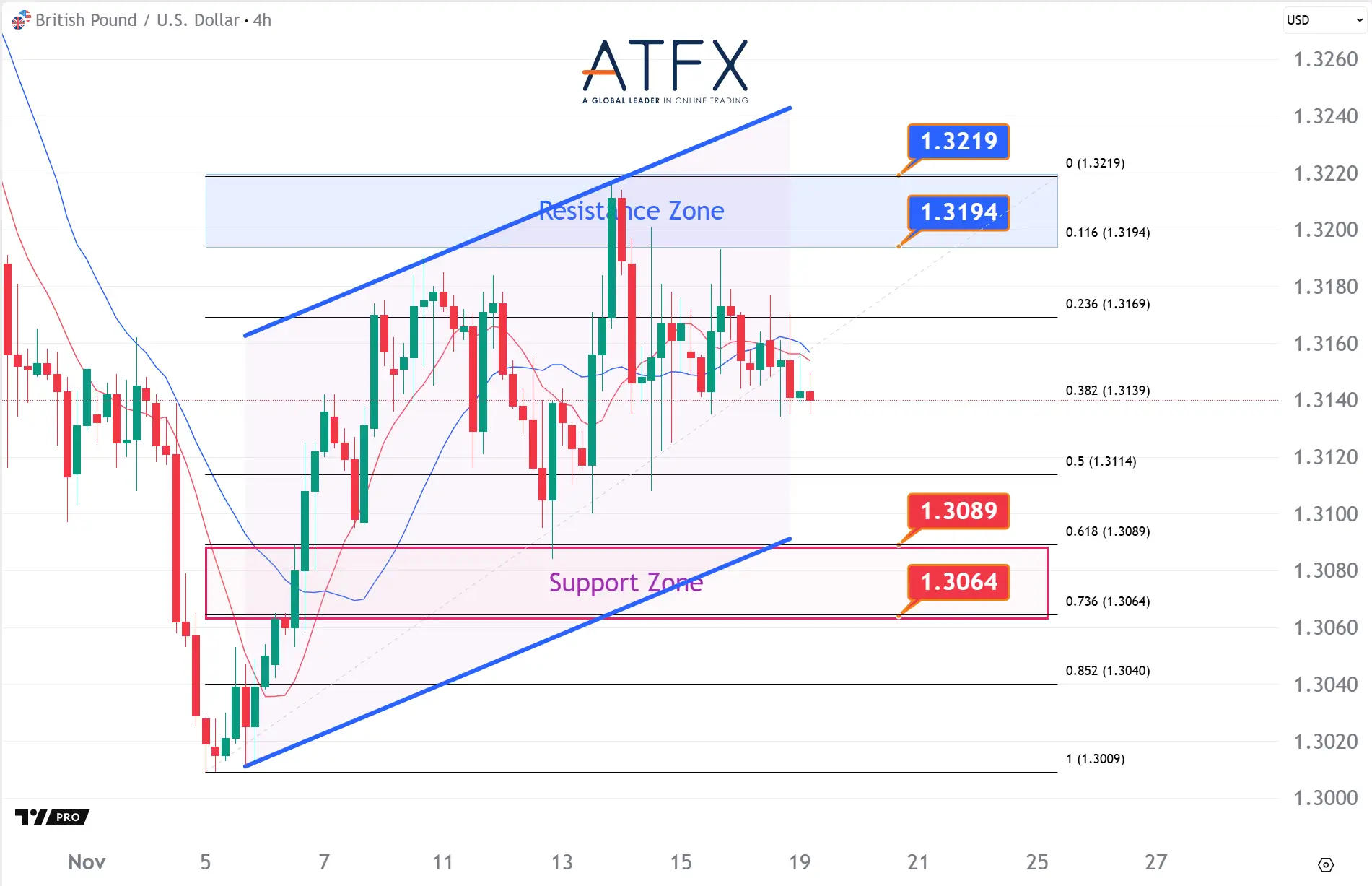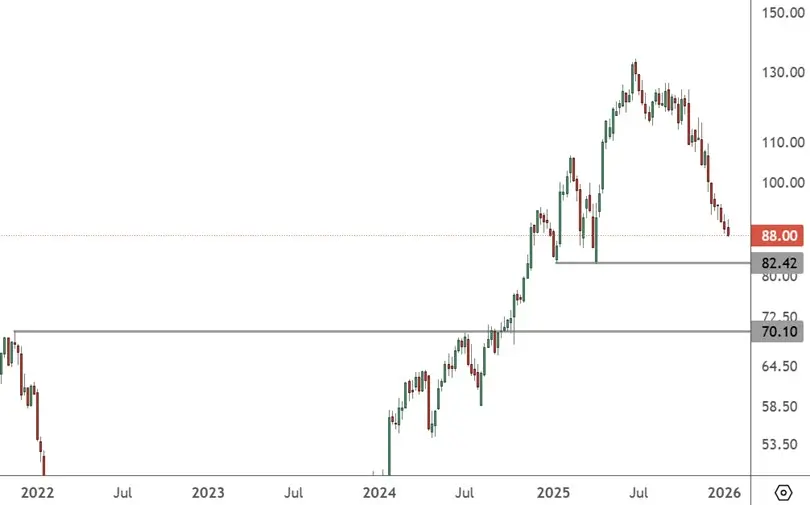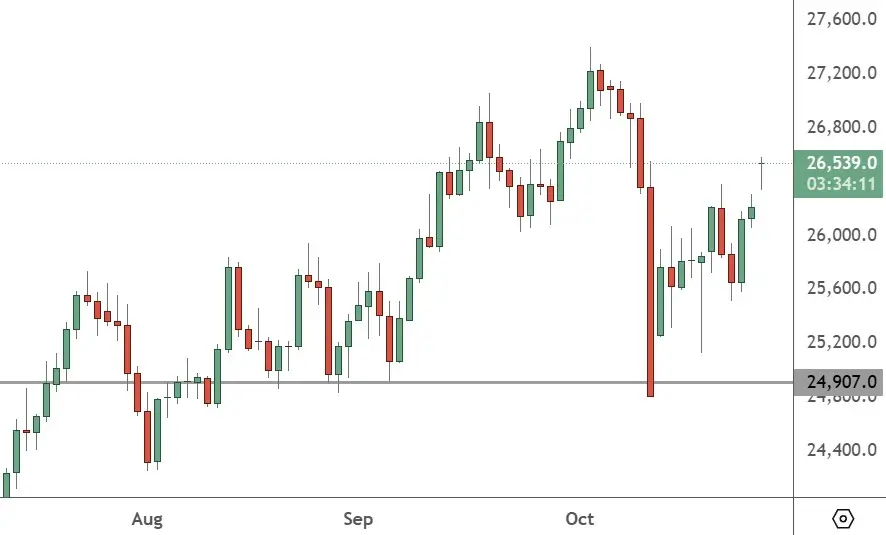The United States’ economic health’s uncertain nature is causing ripples within the global financial markets, intensifying an already tumultuous period. Investors are now facing additional challenges, such as a change in Federal Reserve policy, a highly competitive US election, and concerns regarding overvalued assets.
After closely watched labour market data revealed that the momentum slowed more than anticipated, US stocks experienced a significant decline on Friday. This suggests a narrower path for the US to achieve a soft landing, where the Fed can control inflation without substantially harming economic growth.
The Federal Reserve is expected to reduce interest rates at its forthcoming meeting on September 17-18. However, the recent data has revived concerns that months of high borrowing costs may have negatively impacted the economy. This development is unwelcome news for investors, particularly after prospects of rate cuts against a backdrop of resilient growth contributed to record highs for the S&P 500 this year.
Angelo Kourkafas, a senior investment strategist at Edward Jones, believes that the data indicate progress towards a soft landing but also highlight significant downside risks to which markets will respond. It is anticipated that market volatility will remain elevated.
Evidence of diminished risk appetite is discernible across various markets. The S&P 500 fell by 1.7% on Friday and has lost approximately 4.3% over the past week, marking its worst weekly decline since March 2023. Nvidia, a company emblematic of this year’s enthusiasm in artificial intelligence, declined over 4% and fell close to its lowest level in a month, along with other high-flying technology stocks.
On Friday, The Chicago Board Options Exchange (Cboe) Market Volatility Index, colloquially known as Wall Street’s “fear gauge,” ascended to its zenith in approximately one month.
Keith Lerner, Co-Chief Investment Officer of Truist Advisory Services, voiced his apprehension that the Federal Reserve (Fed) might not respond with sufficient alacrity or resolve to avert a more severe economic recession.
Several elements contribute to the market’s uncertainty. Futures transactions on Friday suggested that investors had priced in a substantial 70% probability of a 25 basis point interest rate reduction by the Fed and a 30% probability of a 50 basis point cut. Nevertheless, for many, the decision remains unresolved.
Quincy Krosby, Chief Global Strategist for LPL Financial, posed the question of whether the August payroll data reflected a return to labour market conditions preceding the COVID-19 pandemic or indications of an economy losing momentum.
Others adopted a more pessimistic perspective. Citi analysts contended that the report justified a 50 basis point interest rate cut later in the month. They inferred that the labour market is experiencing a cooling period, which often precedes a recessionary phase.
The following week’s inflation data has the potential to illuminate the economy’s underlying strength and inform the Federal Reserve’s decisions regarding potential interest rate adjustments.
Simultaneously, concerns surrounding valuations have reemerged. The S&P 500 index, which has experienced an upward trajectory of over 13% during the current year, now exhibits a price-to-earnings ratio of nearly 21 times anticipated earnings over the next 12 months. This ratio stands significantly higher than its historical average of 15.7, as indicated by data from LSEG Datastream.
Moreover, the technology sector of the S&P 500, which represents the index’s largest constituent group, is currently trading at a multiple of over 28 times expected earnings. This valuation is well above its long-term average of 21.2, despite a recent market downturn.
Mark Travis, a portfolio manager at Intrepid Capital Management, observed that significant progress has been made in a relatively short period of time. However, some businesses are initiating evaluations of the costs associated with artificial intelligence (AI) and questioning the viability of continued investment. This introspection has the potential to impact large technology stocks.
Investors are also keeping a vigilant eye on the closely contested United States presidential election, which is now entering its final stages. The race between Democrat Kamala Harris and Republican Donald Trump, could attract investors on Tuesday as the two candidates debate for the first time ahead of the November 5 vote.
Throughout the annals of history, the month of September has been consistently recognized for presenting significant challenges to investors, as evidenced by the persistent decline of the S&P 500 index. Since the year 1945, the index has experienced an average decrease of approximately 0.8% during the month of September, establishing it as the most challenging period for stocks, according to data from CFRA. This trend has remained consistent in recent times, with the index already exhibiting a 4% decline since the commencement of the current month.
Burns McKinney, who holds the position of senior portfolio manager at NFJ Investment Group, astutely observed that investors are cautiously optimistic about the potential for a gradual economic recovery. While the possibility of a harmonious economic transition remains feasible, each subsequent weaker job report diminishes the likelihood of such an outcome.


